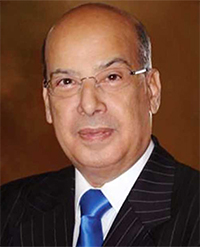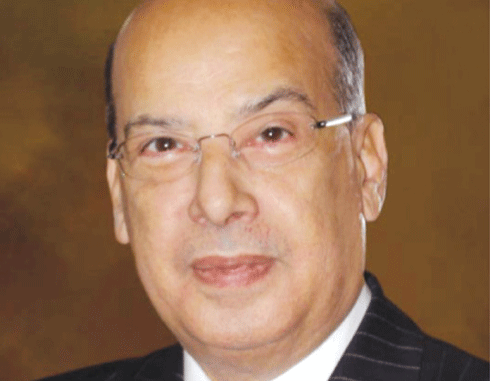
(The writer is Antigua and Barbuda’s Ambassador to the United States and the Organisation of American States. He is also a senior fellow at the Institute of Commonwealth Studies at the University of London and at Massey College in the University of Toronto. The views expressed are his own)
THE English-speaking Caribbean has just emerged from a season manifesting the spirit, intrinsic to Christmas, of ‘peace on earth and goodwill to all’.
Not even the no-confidence vote that was carried against the APNU-AFC coalition government in Guyana on Friday, December 21 disrupted the festive celebrations of the period. Bitterness, felt by faithful supporters of the main political party, the Peoples’ National Congress (PNC), was contained in sterile argument about whether the Constitution was correctly interpreted, and, therefore, the possibility of overturning the vote.
In the coming weeks, that argument might be tested in the Court, which is the appropriate place to settle disputes peacefully and legally.
In Barbados, despite the stringent austerity programme upon which the 7-month old Mia Mottley government has had to embark to put on an even keel an economy left in shatters by the predecessor regime of Freundel Stuart, there was a sense of optimism amid strenuous conditions for many.
The point is that people in these two countries have not been encouraged to march in the streets, nor have they been manipulated to attack one another based on party political support. Instead, the debates have been rife in the media with no restrictions, no political demonstrations, no deployment of police to tear gas protesters, and no arbitrary arrest or detention of real or suspected organisers.
In other parts of the region, particularly in Antigua and Barbuda, Grenada and St Lucia, dissent and disagreement are being expressed and rebutted within the law. The media – both traditional and social – are replete with discussion on all sides of arguments, including, unfortunately, what has come to be known as ‘fake news’; the deliberate distribution of false and harmful information. But no media has been silenced by government action, and no protest suffocated. All ideas are contending, as they should.
But, this maturity of managing dissent; of responding to it with counter arguments, with challenges to its veracity; and by acknowledging shortcomings and acting to correct them, continues to elude parts of the Caribbean region where recent protests against a government have been suffocated by tear-gas and arbitrary arrests and draconian use of laws not meant for this purpose. This is an ugly scar on the Caribbean’s face of human, civil and political rights. It will attract to the region the strongest condemnation and eventual intervention by way of sanctions by the international community if it continues.
In the sub-region of the Caribbean Community (CARICOM), the member-states collectively have collectively shied-away from criticism of excessive behaviour in individual member states. Similarly, CARICOM member states have not pronounced collectively when regimes in other countries in the Western Hemisphere have assaulted their people, imprisoned politicians, and detained champions of human rights.
In part, this studious silence arises from the notion that events in neighbouring counties are “not our business’ and we would best serve ourselves by not getting involved. But within the region, neighbourhood business is local business. For events in one country quickly infect the other.
Because CARICOM has been collectively silent, member states have joined other groups to express their concern, voice their condemnation and even vote against actions by governments within the Western hemisphere that have sought to maintain themselves in power through constitutional manipulation, rigged elections including partisan election machinery, stifling dissent and the excessive use of force by the police and military. This has weakened CARICOM as an agency for advancing Caribbean interests.
This ought not to be the case. Rising-up from a history of slavery and indentured labour, of worker exploitation and human rights atrocities whose scars continue to mark the region today, Caribbean countries should be the strongest defenders of political, civil and human rights.
It is by winning those rights that Caribbean countries emerged into political independence and into some degree of economic self-determination. These are values that form part of the ethos of the Caribbean civilization and they should be defended and upheld. For their erosion elsewhere, could eventually spread to the corrosion within CARICOM states of the values of freedom of speech and expression, of political and trade union association, of human equality, and of the institutions that preserve them. These are the very things that have occasioned high regard for the majority of Caribbean countries by their citizens, their visitors and their investors.
The CARICOM region, therefore, has a large stake in ensuring that democracy and human rights are upheld everywhere. In doing so, they ought not to apply double standards such as the world has witnessed by some powerful governments. Justice is not served by narrow political and economic interests.
But CARICOM silence should not be an option. The region should be steadfast in upholding principles of justice in political, human and economic rights globally, even as it stands-up for international respect for those principles in relation to itself.
Within the hemisphere, over the last eight months, 322 people have been killed and 565 others jailed in Nicaragua. Today, many of its citizens from cities across the country are hiding from the wrath of President Daniel Ortega and his wife, Vice President Rosario Murillo.
Earlier this year, hundreds of thousands of people marched against the Ortega regime and were met by a repressive response. The Ortega family now control virtually every aspect of government, including the National Assembly, the Supreme Court, the armed forces, the judiciary, the police and the prosecutor’s office. Ortega caused an amendment to the Constitution to keep himself in office, and presumably to maintain power that has allowed his adult children to manage everything from gasoline distribution to television stations.
The excesses continue, worsened this week by a raid on the country’s leading human rights organisation and the expulsion of international human rights observers. Among those expelled was Paulo Abrão, the executive secretary of the Inter-American Commission on Human Rights of which all CARICOM countries are members.
CARICOM countries may continue to respond in different ways to events in Nicaragua, but acceptance cannot be one of them.
The Ortega regime has gone too far.
Responses and previous commentaries: www.sirronaldsanders.com
26 December 2018














The history of both Central and South America is a very sad one;that sad story goes back from the
time of it’s discovery right up to the present time, and there’s no slowing down looking deep into the
future.The Spaniards plundered the most part of the Continent, abandoned it after revolutions against
slavery, rape, the destruction of the Native Culture and civilization. What, if anything was left by the
Spaniards, Portuguese,etc.etc. was nothing but a continuation of wars, revolution, poverty, misery the
lack of stable Governments, health care and so on. What’s happening there is not good, but hardly
anything was said when the Fascist dictatorships of Argentina, Chile and the Dictator before Ortega
were doing worse than what Ortega is now accused of doing. It’s all bad, but that’s Latin America anyway.